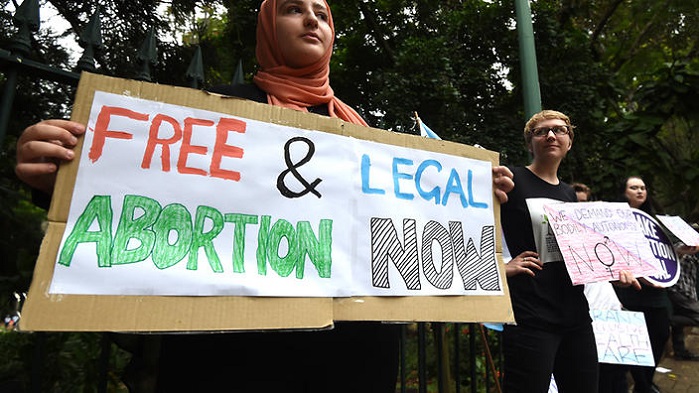The United Nations Human Rights Council last week concluded its most recent session in Geneva. True to form, the council adopted a resolution promoting abortion under the guise of responding to COVID-19.
The U.N. Human Rights Council advanced the resolution July 17 under the topic of ending discrimination against women and girls. It made the radical claim that “sexual and reproductive health services,” including “safe abortion,” are an “essential health service” in the context of the COVID-19 pandemic.
This new resolution bolsters clear evidence that the U.N. is using coronavirus relief funding to promote abortion.
Recently released U.N. data maintains that 5 million women in 25 low-income countries have received “sexual and reproductive health services” as a result of its pandemic aid. The “services” are defined as including abortion, technically distinct from what the U.N. designates as care related to maternal health.
The U.N. also notes that 800,000 youth aged 10 to 24 have received these services and related information from the global organization’s COVID-19 programs.
Such activities reveal the penchant of U.N. actors for manipulating critical, highly sensitive issues—such as the very real discrimination against women and girls—into vehicles to promote abortion.
We all agree that women and girls are disproportionately affected by the pandemic. This may encompass exacerbated socioeconomic disadvantage, restricted access to essential health services (including for mothers), limited educational opportunities, and more.
Click Like if you are pro-life to like the LifeNews Facebook page!
These urgent and tragic repercussions are rendered all the more devastating when exploited for controversial agendas.
Spearheaded by the government of Mexico, the Human Rights Council’s resolution on discrimination makes token reference to promoting abortion where “not against the law.” However, U.N. member states should place little weight on this caveat given recent findings that both the World Health Organization and the U.N. Population Fund are promoting abortion in violation of state sovereignty.
The U.N. Population Fund, for example, has an online ordering system in which individuals in a humanitarian setting can direct-order abortion kits. The kits, with a standard price of $746.65, can be expedited to arrive within two to seven days and contain all necessary abortion materials for a given population for three months.
If needed, a calculator is offered to tailor the amount more precisely by population size.
These kits are dispatched to countries experiencing humanitarian crises, such as Ecuador, without regard for national laws.
The Human Rights Council’s resolution also endorses “comprehensive sexuality education” as another supposed antidote to the problem of discrimination. This “education,” first articulated by UNESCO and now mainstreamed across the U.N. system, includes concrete curricula for the extreme sexualization of children, beginning at the earliest school-age years.
The resolution backs the view that the denial of comprehensive sexuality education constitutes discrimination against girls, and is thus a human rights abuse.
Comprehensive sexuality education remains widely contested in U.N. debates, and frequently is shot down by member states in voted processes. In this instance, it was brought for a vote alongside the various abortion-related references, and challenged by 11 of the council’s 47 member states. The abortion language received 13 challenging votes.
Although not sufficient to constitute a reversal, this dissent makes clear that these agendas are far from consensual on the international stage, and cannot be said to carry the force of international law.
Proponents of comprehensive sexuality education who claim that denying children this “learning” equals discrimination exploit tragic circumstances to spread their ideology.
For example, take a pending case in Ecuador regarding Paola Guzmán Albarracín. This young woman was sexually abused by the vice principal of her school, who demanded she receive an abortion when she became pregnant.
Guzmán was subjected to further sexual abuse by the school’s medical officer, who forced her to engage in relations with him to receive the abortion.
She died by suicide in 2002 at age 16.
Human Rights Watch submitted an amicus curiae brief in response to this case to the Inter-American Court of Human Rights. In the brief, it states that comprehensive sexuality education “leaves children and adolescents without the information they need to make informed decisions about their sexuality and reproduction, that can in turn make them vulnerable to sexual exploitation and abuse, unplanned and unwanted pregnancy, and unsafe abortion.”
Guzmán no doubt was a victim of insidious criminal activity. But the claim of Human Rights Watch, as supported by the Human Rights Council, that comprehensive sexuality education somehow would have spared her this fate not only is manifestly erroneous, but has the effect of drastically misdirecting culpability.
The documented reality is that much of comprehensive sexuality education is highly inappropriate material, verging on pornographic, that is provided to children often of young age and without parental oversight.
Everyone agrees that children must be empowered to avoid situations of harm, but indoctrination guised as education will not contribute to their safety.
As articulated by the U.S. ambassador to the U.N., Kelly Craft, “the U.N.’s own focal point, the Human Rights Council, has proven politicized and ineffectual.” This most recent example reaffirms the soundness of the United States’ decision to withdraw from the council.
At the same time, the Human Rights Council’s action highlights the urgent necessity for reasonable U.N. member states to redirect the discourse to spare the innocent lives at stake.
LifeNews Note: Elyssa Koren is the director of U.N. advocacy for ADF International.








